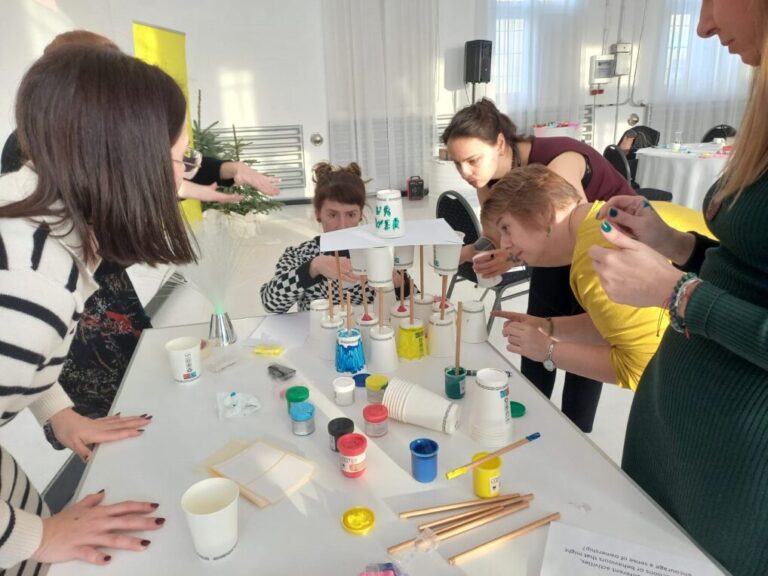Call for Partners – Lebanon and Jordan

Mental health and psychosocial support for refugees, displaced and vulnerable communities in Lebanon and Jordan

Lebanon remains the country hosting the largest number of refugees per capita, with an estimation of 1.5 M Syrian refugees and 11,645 refugees of other nationalities (UNHCR, 2024). Additionally, it is estimated that more than half the Lebanese population is living below the poverty line. Lebanon is experiencing one of its worst socio-economic crises in decades further, exacerbated by the impact of the pandemic, the Beirut blast and the recent conflict in Gaza. These conditions have resulted in further displacement of communities living in Lebanon, host and refugee, and increasing numbers of people living in poverty. Many are struggling to cover their basic needs, and there is reduced access to services like healthcare and education. Consequently, many refugees including 90% of Syrian refugees require humanitarian assistance to survive, according to the 2022 Vulnerability Assessment of Syrian Refugees in Lebanon.
Jordan is one of the countries most affected by the crisis in Syria, hosting the world’s second-highest number of refugees per capita. Some 730,000 refugees are registered with UNHCR, predominantly from Syria, with large groups of refugees also from Iraq, Yemen, Sudan, and Somalia. Around 81% live in urban areas outside of refugee camps.
Impact on Communities
The impacts of displacement, conflict, poverty can result in chronic stress and trauma, which can be felt in people’s minds and bodies. If not addressed, this can last a lifetime and transmit across generations. For children, prolonged exposure to conflict, violence and adversity can lead to lasting changes in the developing brain, affecting learning and relationships, with a legacy into adulthood. The overwhelming stresses of displacement can significantly influence caregiver wellbeing and the capacity to provide a safe and nurturing environment for children. Young people and adults who become displaced experience increased prevalence of depression, anxiety and psychosomatic conditions. Many people who come into contact with mental health services are diagnosed with post or complex traumatic stress disorder. For those who manage to flee the conflict, they can encounter hostile environments and systems in their journey to seek safety, often experiencing isolation, and discrimination on top of poverty and loss of social status.
Amna’s Approach
To support impacted communities in Lebanon and Jordan, and to mitigate the long-term effects of chronic stress and trauma, Amna is launching a community based mental health and psychosocial support (MHPSS) training and support programme with local organisations to ensure greater access to quality, empowering, community healing services for refugees, displaced and vulnerable people in Lebanon and Jordan.
Amna’s programmes are designed by a team of refugees, education and mental health professionals. It centres solidarity, joy, and belonging as therapeutic tools. The training programmes blends evidence-based practice with cultural traditions, harnessing practices including rhythm, movement, and storytelling to promote healing. Rather than offering a standardised model, Amna works with its community partners, who are non-clinical specialists, to develop programmes that are culturally appropriate and are designed with, and wherever possible, led by, the communities they are for. The programmes are developed using a rigorous training and mentoring pedagogy, evaluated by Harvard School of Public Health, the University of Virginia’s Humanitarian Collaborative, and Chapin Hall at the University of Chicago.
To date we have worked with community partners in 13 countries across Europe, the Balkans and Pakistan. Amna’s Early Childhood Development Programme, Baytna, has been cited as best practice by UNESCO, Moving Minds Alliance and the Nurturing Care Framework.
We believe that local organisations are experts in their contexts. Amna does not prescribe a model, rather it trains partners to learn its approach and methodologies and support them to apply what is relevant and appropriate in their context.
Taking part in the Amna training was an enriching experience. This was a hands-on, thought-provoking program that left me inspired; feeling much more influential with many actionable take-aways I can apply immediately. All of the trainers were excellent, extremely professional and knowledgeable, and created positive learning environments. I am looking forward to the next one.
Afghanistan Response Partner
Call for Partners in Lebanon and Jordan
Amna is committed to supporting frontline workers in community based (CBOs), refugee led (RLOs) and locally led organisations to bring non-clinical mental health support to every person by conflict and displacement.
Amna is seeking partnerships for over 24 months with up to 10 organisations in Lebanon and Jordan who are working with refugees and displaced communities, as well as vulnerable host community members. Amna will offer a programme of training and support, with accompanying funding, to help organisations establish or deepen, healing spaces for children, families, youth and adults. Partner organisations will be become part of a community of practice that is committed to continuous learning exchange and peer support with the other organisations in the training hub.
We are looking for a diverse cohort of partners that work with, but not limited to, children in early childhood and their caregivers, those working in formal and informal education settings, organisations working with youth, and those who are working with highly vulnerable populations.
We are particularly seeking partnership with organisations that are led by people with experience of displacement and those organisations whose delivery teams include the communities it serves.
What We Offer
Amna’s Lebanon and Jordan programme offers a learning and development journey that includes:
- Funding up to 40,000 euros over 24 months to support programme design and implementation
- Travel grant for up to 3 training participants to attend in-person training in Lebanon
- Training in providing safe, non-clinical, mental health and psychosocial care practices
- Training in identity informed, culturally sensitive trauma-informed practices
- Tools for supporting communities experiencing the impact of systemic inequalities, such as elevated stress, discrimination, grief, loss, fear and uncertainty
- Facilitator skills of using non-clinical practices including arts, movement, music & rhythm, storytelling, mindfulness and other creative tools to support healing
- Values-based working and applying Amna values of Respect, Curiosity, Understanding and Connection
- Soft skills including Listening, Therapeutic Communication and Perspective Taking
- Specialist training modules on psychosocial support including working children, families, youth and adults
- Train the trainer’s module
- Peer support and reflective practice to integrate trauma and identity informed mental health and psychosocial skills
- Organisational support sessions for facilitators and managers
- Access to a community of practice of other organisations working in this context
- Access to join Amna’s Global Healing Network
Eligibility
To be eligible, applicants must meet the following criteria:
- Work with vulnerable communities including refugees, displaced, stateless and vulnerable people in Lebanon or Jordan
- Previous experience of working with these communities
- Locally based community organisation operating in Lebanon or Jordan (not a local branch of an international NGO)
- Registered NGO or an established legal entity
- Can commit to 24-month partnership and learning journey with Amna
- Have policies and processes that keep their staff and the communities they serve safe
Application Process:
If you are interested in partnering with Amna, please complete an Expression of Interest
Deadline for submission is 18 March 2024.
If Expression of Interest is received positively, you will be invited to an online assessment meeting where you will have the opportunity to discuss your application in more detail.
Those who are then progressed further, you will be requested to submit a full Proposal Project Plan and budget, and comply with due diligence process.
We will be reviewing applications as they arrive, so please submit as soon as you can.
If you have any questions, please contact partnerships@amna.org
Timeline of 24 month partnership journey
This journey is an outline and subject to change based on ongoing assessment of regional circumstances. If required, Amna may move some of the training online.


